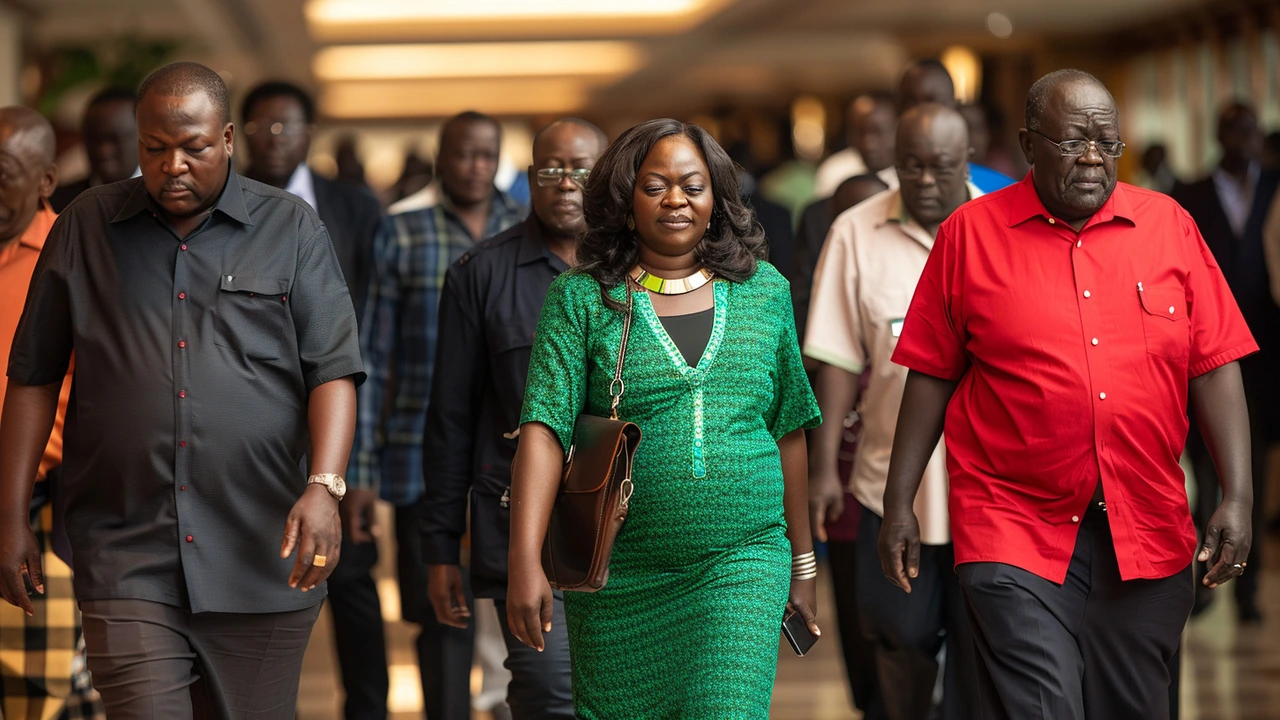
In a notably candid address, Embu Governor Cecily Mbarire issued a stark warning to the leaders of the Kenya Kwanza coalition: deliver on your promises or risk being swept out of office in the next election cycle. Her remarks were delivered during a Kenya Kwanza Parliamentary Group meeting at the State House in Nairobi on June 18, a gathering that brought together the coalition’s top brass for a strategic discussion about their progress and future.
Mbarire's message was unequivocal. She urged the elected officials to curb politicking and to focus on their primary mandate – fulfilling the promises they made to the Kenyan people during the 2022 general elections. Mbarire emphasized that the electorate was watching closely and would not hesitate to vote out leaders who failed to meet their expectations. She stressed that the promises made during the campaign were not just political rhetoric but commitments that needed to be honored for the benefit of all citizens.
The governor’s caution comes at a time when there are increasing speculations about internal rifts within the Kwanza hierarchy, particularly between President William Ruto and his deputy, Rigathi Gachagua. Reports of discord are believed to stem from allegations by Gachagua that individuals close to President Ruto are meddling in Mt. Kenya regional politics, a move that could potentially destabilize the coalition’s unity. Mbarire's address appeared to also serve as a plea for internal harmony, reminding the leaders that their paramount duty was to the country’s progress and not individual political interests.
The governor warned that failure to concentrate on developmental work and the economic welfare of the citizens would render the Kenya Kwanza leadership vulnerable in the 2027 elections. Her concerns are not without basis; in Kenyan politics, the electorate has been known to be unforgiving of unfulfilled promises. The risk of public discontent leading to electoral defeat is real, and Mbarire's words served as a reminder of the stakes involved.
Interestingly, the governor also touched upon the subject of succession politics which is already causing a stir within the coalition. Mbarire cautioned against getting entangled in the premature discussions about the 2032 elections, noting that such discourse could detract from the urgent task of governance at hand. She pointed out that this kind of premature jockeying for future political positions was counterproductive and could hinder the current administration from achieving its goals.
Mbarire’s comments hinted at the ambition simmering within the Kwanza ranks, as she mentioned several individuals who have shown interest in vying for the presidency in 2032. She referred to notable politicians like Ndindi Nyoro, Aaron Cheruiyot, and Kimani Ichung’wah as potential contenders. Her assertion that even women are interested in vying for the top seat opens an exciting chapter in Kenya’s political narrative, highlighting a gradual shift towards gender inclusivity at the highest level of government. This could signal a significant change from the traditional political landscape dominated by male figures.
The discussion revolving around women potentially vying for the presidency could be seen as a positive development in a country striving for gender equality. Mbarire's insightful commentary on the future political prospects underscores the dynamism within the Kenya Kwanza coalition but also the challenges of maintaining focus on immediate priorities.
As Mbarire’s speech resonated through the halls of the State House, political analysts dissected her remarks, noting that her powerful position as a governor lent significant weight to her words. Her call to action is likely to stir reflection among the Kenya Kwanza leaders. The message was clear - fulfilling policy promises and development projects must take precedence if the coalition is to retain the trust of Kenyans.
In a broader context, Mbarire's admonition might well serve as a wake-up call not just to Kenya Kwanza but to political leaders across the spectrum. The notion that governance should be about the people, not personal ambition or prolonged politicking, is a principle that cuts across party lines. For Kenyans, the expectation is straightforward – they want leaders who are committed to improving lives through tangible actions and policies, not endless political wrangling.
With several infrastructure projects and economic policies in the pipeline, the coming months will be critical for Kenya Kwanza. The administration’s ability to deliver on these promises will likely influence their political fortunes in the years to come. The pressure is on, and as Governor Mbarire so eloquently put it, the promises made are not just political words but commitments that will be judged at the ballot box.
Write a comment